Opinion: ‘They ate at my Palestinian table, then ignored my people’
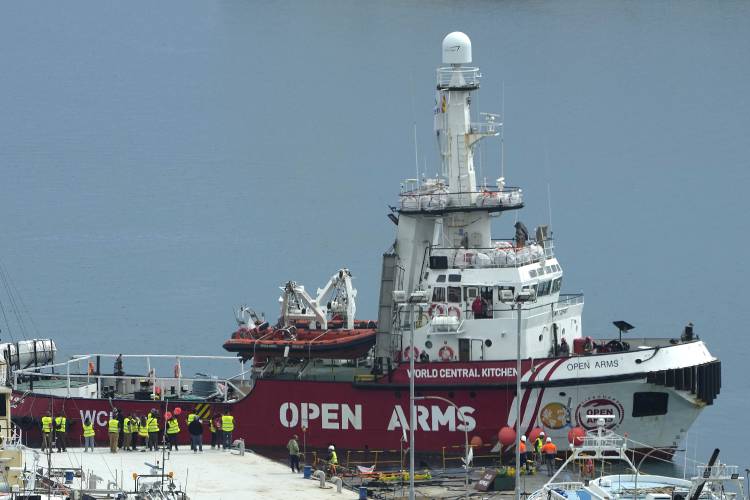
The ship Open Arms belonging to the Spanish aid group by the same name, arrives in Larnaca port after delivering 200 tons of aid to Gaza, on March 17. A second ship has been preparing to depart from Larnaca port to deliver more quantities of aid from the U.S. charity World Central Kitchen as part of a maritime corridor to the Palestinian territory. Petros Karadjias / AP
| Published: 03-23-2024 6:00 AM |
Robert Azzi is a photographer and writer who lives in Exeter. His columns are archived at robertazzitheother.substack.com
In 2005, during a conference in Camden, Maine, a close friend of mine asked Israeli intelligence analyst Yossi Alpher why Israel continues to refuse, as part of any peace negotiation, to allow even a token number of Palestinians displaced during al-Nakba, the Catastrophe, to return to their homes.
“To do that,” Alpher answered, “would be to admit that Israel was born in sin.”
“And what nation,” another friend responded to Alpher, “was not born in sin?”
What nation, indeed?
Today, 75 years after Israel declared its independence, al-Nakba continues to mark the time when, primarily between Dec. 1947 to Jan. 1949, over 750,000 Palestinians were displaced from their homes and over 500 Palestinian villages were occupied and either destroyed or depopulated by Israeli forces.
Al-Nakba persists and informs to this very day as sin continues to stain the land.
Israel not only still refuses to acknowledge the realities of its birthing story and still refuses to fulfill any of the applicable UN resolutions related to that birth but is doubling down upon that history, inflicting upon Palestinians in Gaza what was inflicted upon Palestinians 75 years ago.
Article continues after...
Yesterday's Most Read Articles
 With Concord down to one movie theater, is there a future to cinema-going?
With Concord down to one movie theater, is there a future to cinema-going?
 “It’s beautiful” – Eight people experiencing homelessness to move into Pleasant Street apartments
“It’s beautiful” – Eight people experiencing homelessness to move into Pleasant Street apartments
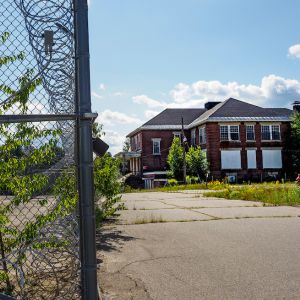 No deal. Laconia buyer misses deadline, state is out $21.5 million.
No deal. Laconia buyer misses deadline, state is out $21.5 million.
 Quickly extinguished fire leaves Concord man in critical condition
Quickly extinguished fire leaves Concord man in critical condition
 Concord police ask for help in identifying person of interest in incidents of cars being keyed during Republican Party event
Concord police ask for help in identifying person of interest in incidents of cars being keyed during Republican Party event
 Update: Victim identified in Lantern Lane fire in Concord
Update: Victim identified in Lantern Lane fire in Concord
It is not only trying to expand its rapacious appetite for land cleansed of its Palestinian inhabitants, I believe, but it is also insisting on trying to erase, demonize, marginalize, and delegitimize any attempts to sustain the humanity of the people of Palestine.
From Gaza to Berlin to New York to Miami we are witnessing unprecedented, unrelenting and pernicious attacks upon Palestinians and their supporters not only to deny their story but to deny their very existence.
Attacks justifying genocide and ethnic cleansing, attacks denying the humanity of an entire people.
The sins multiply.
As I celebrate Ramadan I was moved this week by an offering from an internationally-celebrated cookbook-writer, Palestinian-American Reem Kassis, who lives in Philadelphia and who believed, until recently, that “culinary exchange could build empathy.” In a voice trembling between outrage and pathos, she wrote in The Atlantic: “I am talking about the specific abandonment I’ve felt in the food world, where Palestinian restaurants once loved for their cuisine say they were flooded with one-star reviews. I’m referring to one establishment that sent home employees for wearing pins supporting Palestine and another with staff who say they were fired for their advocacy. I am thinking about a food-truck owner who was harassed with racist abuse and another food vendor whose signs expressing solidarity with Palestine were removed.”
As in so many other cases across the Palestinian diaspora, she was wrong; wrong for believing her humanity would be considered equal to the humanity of others.
In the eyes of Israel and its complicit supporters, there is no room for empathy, no room for understanding what has been unleashed upon the non-white, non-Christian peoples — the Palestinians — between the River and the Sea.
At the Institute of Contemporary Art, Miami (ICA Miami), it is reported, museum authorities quietly removed a portrait of Palestinian-American scholar, post-colonial theorist and political activist Edward Said before a gala and then re-installed it, raising concerns that Said’s portrait had been removed to avoid possibly offending any pro-Israel donors or benefactors attending the evening event.
The word of the removal of artist Charles Gaines’ portrait of Said was first shared online as an anonymous tip posted on social media by the advocacy group Art Against Displacement (AAD). The author of the text suggests that the portrait was taken down “solely based on [Said’s] Palestinian identity.”
That certainly makes sense to me, especially as ICA Miami continues to refuse to address questions and concerns about its action and motivations, especially as there appears to be unrelenting attacks on representations of and by Palestinians in public spaces — attacks too numerous to describe here but which will be the subject of a forthcoming column.
Last Friday a ship organized by World Central Kitchen, founded by a celebrity chef, José Andrés, and the Spanish search-and-rescue group Open Arms delivered nearly 200 tons of food and water to the blockaded Gaza Strip where starvation and famine are becoming endemic, a land where — on this the 9th day of Ramadan — at least 27 children have died of malnutrition and dehydration and where, according to the United Nations, more than a quarter of Gaza’s 2.2 million residents are facing “catastrophic levels of deprivation and starvation.”
Sin continues to stain the land.
I’m lucky. I can choose to fast or not fast. I don’t worry about whether my water is safe to drink, my food safe to eat. I know medical care is available for me and loved ones if the need arises.
I’m not asking you to accept the Palestinian narrative to the exclusion of all other arguments. I’m insisting that you understand that the two peoples inhabiting one land have conflicting narratives, that one people is not more privileged than the other.
I’m not asking you to accept a Palestinian right to resist occupation and oppression. They don’t need your permission. They have that right.
They don’t have the right to attack civilians.
I don’t write today to argue that the colonial-settler state of Israel has no right to defend itself against war crimes and criminal acts as occurred on Oct. 7.
They have that right.
They don’t have the right to inflict genocide and ethnic cleansing against any people; no right to inflict starvation and famine against any people.
I’m asking you to recognize, as late Archbishop Desmond Tutu warned, that “Those who turn a blind eye to injustice actually perpetuate injustice. If you are neutral in situations of injustice, you have chosen the side of the oppressor.”
In 2013, Anthony Bourdain, an American celebrity chef, author, and travel documentarian, in the second season of “Parts Unknown,” said of a segment he produced on Jerusalem, the [occupied] West Bank, and Gaza:
“I was enormously grateful for the response from Palestinians in particular, for doing what seemed to me an ordinary thing. Something we do all the time: Show regular people doing everyday things. Cooking and enjoying meals. Playing with their children. Talking about their lives, their hopes and dreams. It is a measure I guess of how twisted and shallow our depiction of the people is, that these images come as a shock to so many.”
Anthony Bourdain continued, saying: “The world has visited many terrible things on the Palestinian people. None more shameful than robbing them of their basic humanity. People are not statistics. That is all we attempted to show. A small, pathetically small step toward understanding.”
Nothing is more shameful than robbing a people of their basic humanity.


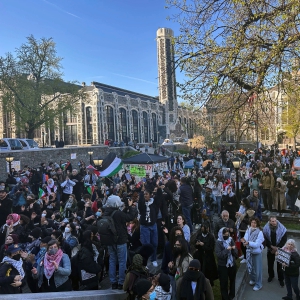 Opinion: ‘This being human is a guest house’
Opinion: ‘This being human is a guest house’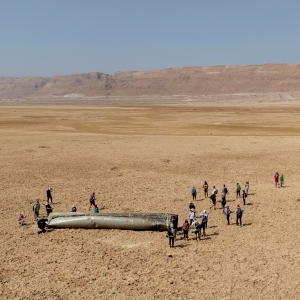 Opinion: The truth of it
Opinion: The truth of it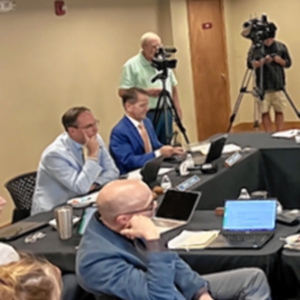 Opinion: Public school standards overhaul will impact every facet of public education in NH
Opinion: Public school standards overhaul will impact every facet of public education in NH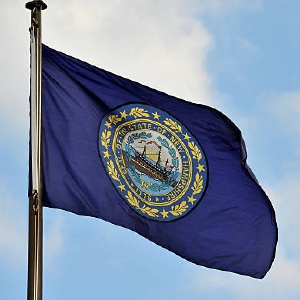 Opinion: A bad idea for New Hampshire
Opinion: A bad idea for New Hampshire
